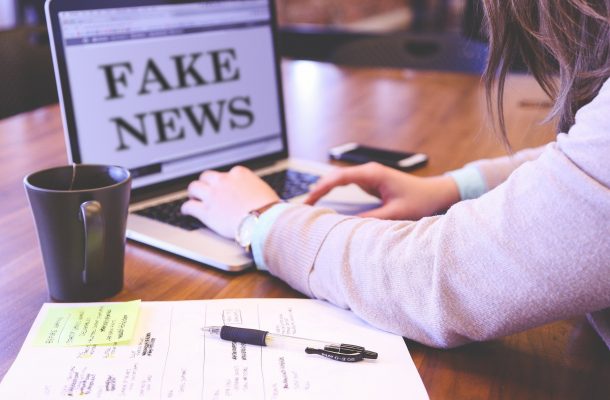Arvanitakis on American politics: Don’t believe the social media hype

Over the past four years, many commentators across the globe have tried to unpack the reasons for the election of Donald Trump – and for countless, it remains a mystery. Like many, the New York Times, has turned its attention to social media.
In fact, on 19 November 2016, The New York Times’ editorial board published a scathing critique of Google and Facebook’s failure to stop the spread of falsehoods in the lead up to the Presidential election. Looking at the feast of ‘fake news’, the editorial argued social media was at the core of the Trump win, stating:
“But a big part of the responsibility for this scourge rests with internet companies like Facebook and Google, which have made it possible for fake news to be shared nearly instantly with millions of users and have been slow to block it from their sites.”
Such concerns are emblematic of many who see social media as a threat to democracy because it can corrupt our perceptions of political reality. Implicit in such claims is that social media is negatively impacting the accuracy of our beliefs and manipulating our preferences in ways that ‘traditional’ media does not.
The story is a familiar one: fake news is shared without critique; click bait is the new normal; and social media organisations are at fault from everything from Trump to Brexit. We, as citizens, are helpless and at the mercy of a system out of control and open to manipulation.
While I have written about the way organisations such as Cambridge Analytica harvested data and assisted political campaigns in micro targeting, the above narrative is one that should not be accepted at face value.
In fact, it is an argument that is not based on evidence and, more importantly, fails to address the issues that have allowed populists to again emerge and set political, social and economic agendas.
The changing media landscape
While the word ‘disruption’ is now so frequently used it no longer has any impact, it can certainly be applied to media. Not only have the ‘traditional’ media been overwhelmed with new media channels, social media is now a significant source of news for many of us.
The Pew Research Centre has been analysing the way Americans consume their news and media with regular and widely cited reports.
In 2019, they presented some startling and concerning statistics including the fact the that U.S. newspaper circulation had reached its “lowest level since 1940” – the first year where such data become available.
In fact, daily newspaper circulation (print and digital combined) “was an estimated 28.6 million for weekday and 30.8 million for Sunday in 2018” – down 8 percent and 9 percent respectively from the previous year.
Furthermore, while revenue from digital advertising continues to grow exponentially, the majority continues to be directed to online platforms rather than publishers. Pew stated that revenue from advertising across all digital platforms rose by 23 percent in 2018, over half of all revenue went to just two companies: Facebook (40 percent) and Google (12 percent).
The consequences have been devastating. About a quarter of large newspapers laid off staff in 2018, building on similar numbers from the previous year. These are long-term trends that are likely to be accentuated by the pandemic crisis as advertising revenues plummet.
Despite this, Pew also found that Americans actually prefer television as their primary news source – which also remains the most trusted. Viewing loyalties are a long way from migrating to the web though there is a trend that way. For those who prefer to read the news, most turn to online sources – something driven by a younger demographic.
It is also important to note that while people’s political preferences define the media outlets they are drawn to, most Americans still get their news from multiple sources. For example, those who prefer to watch television also turn to YouTube (73 percent) and Facebook (69 percent).
The evidence
This paints a complicated picture and gives rise to the conventional wisdom that social media and fake news are now driving election results. A number of studies, however, challenge this conventional wisdom.
The first study worth noting is from the 2019 Reuters Institute for the Study of Journalism (Oxford) which tracked the online news consumption of 1,711 people aged 18-65 across mobile and desktop devices. The study undertook further research with a subsection of focus groups.
What the researchers were seeking to understand was the relative importance for voters of offline and online news and their attitudes to politics. While researchers found some evidence for partisan selectivity, they also found “a lot of cross-cutting exposure (especially among those who rely on social media) and little evidence of partisan selective avoidance.”
The research found that few people consumed news solely from outlets supporting the party they voted for with little evidence of influence of partisan outfits.
In other words, the majority of those surveyed did not simply accept the first source that they came across even if it echoed their views.
This echoes a 2019 School of Communication at the Ohio State University study that investigated fake news and the way voters were influenced through social media platforms in the 2012 and 2016 U.S. Presidential elections.
This study also found restricted social media impacts on the election with the sharing of ‘fake news’ limited. In fact, users of social media would seek confirmation regarding outrageous claims about political opponents.
What does this all mean?
Importantly, both studies found that the impacts of social media were relevant but not significant – though we can speculate that this is likely to increase as the media landscape continues to change.
We should neither ignore the impact of social media nor dismiss the rise of ‘fake news’ but the fundamental problem with focusing on this is that we miss the reasons why the voting public is turning away from mainstream political parties towards populist politicians.
It is comforting to blame fake news for election results we disagree with, but by so doing, we echo the same claims with political opponents – both blaming the other side for the same thing.
What is more difficult to understand is the discontent that has emerged and admit that the policies we may have supported have negatively impacted people and create this environment of dissatisfaction.
Promoting online literacy for young people and demanding social media quickly responds to fake news are worthwhile goals, but they do not deal with the underlying challenges we are confronting. Blaming Facebook or Google does not solve that.
Professor James Arvanitakis is the Executive Director of the Australian American Fulbright Commission – one of the world’s most prestigious international education and cultural exchange programs.













